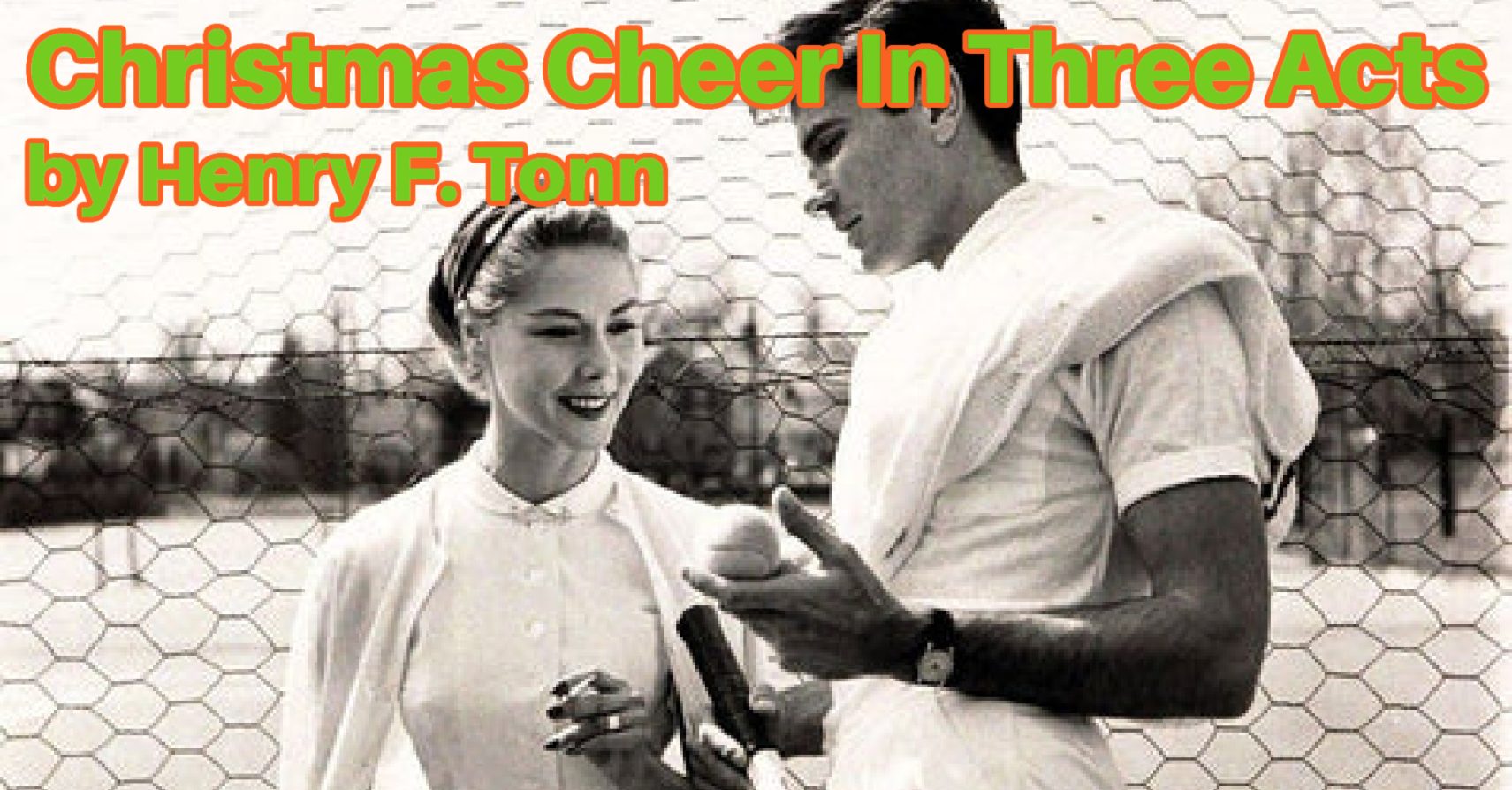
CHRISTMAS CHEER IN THREE ACTS by Henry F. Tonn
Thesis He is the big stud with the big arm and the big serve and king of the courts. She is the glitter girl, the glamor queen, the incandescent prodigy of homecoming competitions. She consorts with star basketball players who are six foot eight and academically challenged but cocky because they can dunk blindfolded. However, everything changes the afternoon she looks at him in that certain way through the wire fence of the tennis facility and says something that is lost in the wind. But he rises to the occasion by asking, “what in the world are you doing on…
